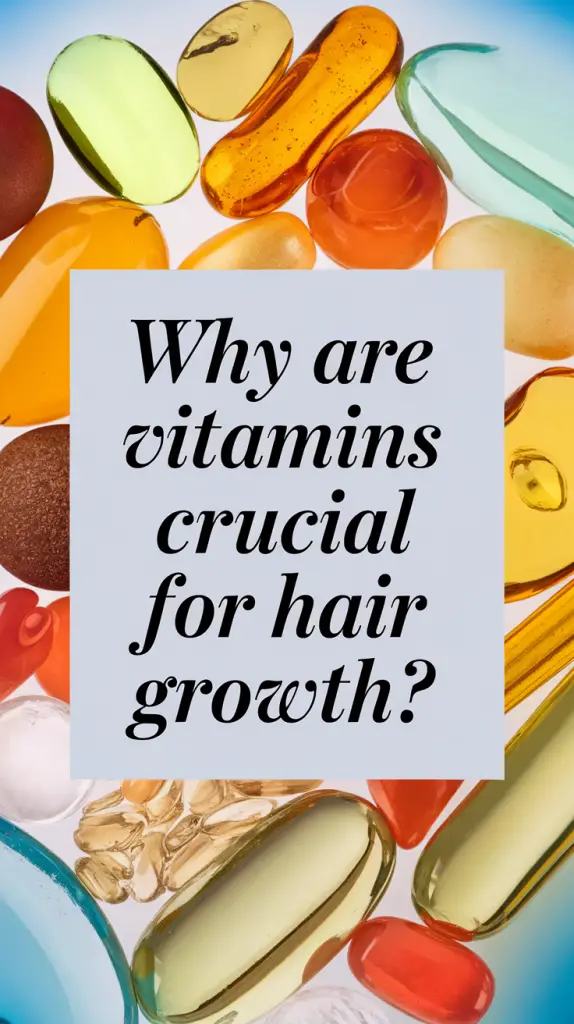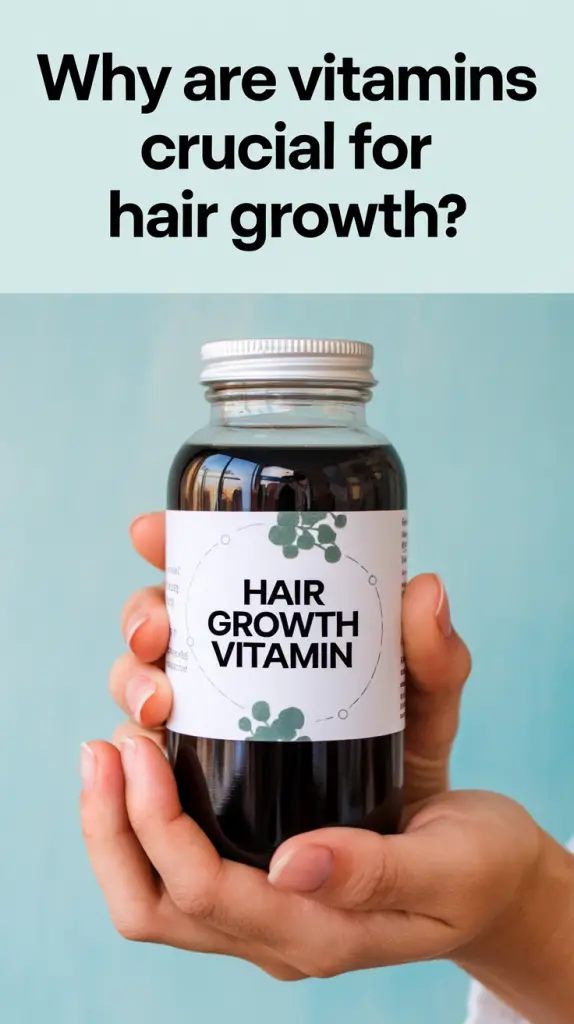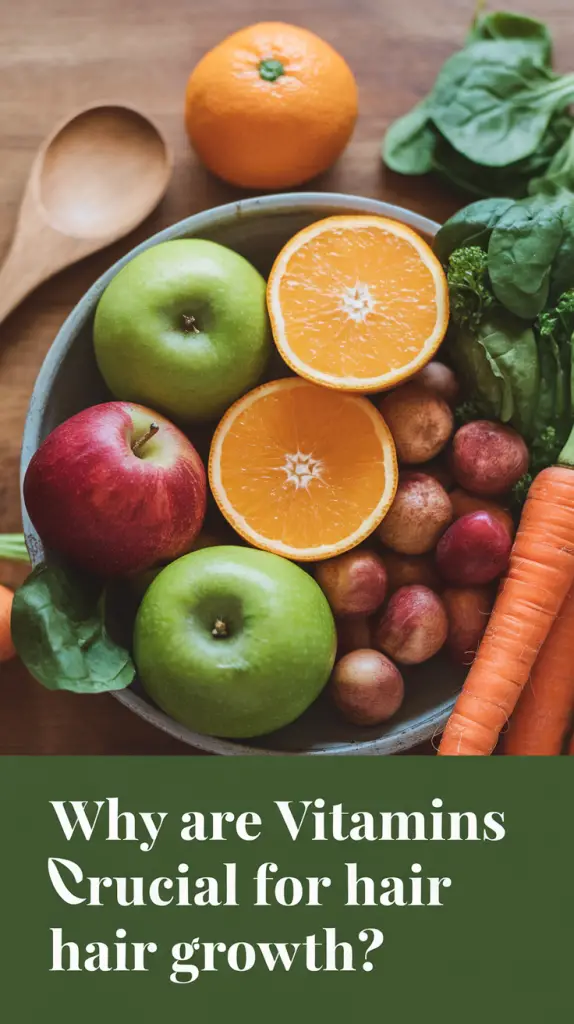What Vitamins Are Good for Hair Growth?
Achieving healthy, vibrant hair is more than just using the right products—it’s about nourishing your hair from the inside out. Vitamins and minerals play a key role in promoting hair growth and preventing issues like thinning or dullness. On my own journey to healthier hair, I discovered how certain nutrients can make all the difference. Let’s explore these vitamins and how you can use them to unlock your hair’s full potential.
Why Are Vitamins Essential for Hair Growth?
Hair is one of the fastest-growing tissues in the human body, and like any other part, it relies on proper nutrition to thrive. Vitamins act as catalysts for essential bodily processes, such as cell regeneration and nutrient absorption, which directly impact the health of your hair. Without the right balance of vitamins, you may notice hair loss, slow growth, or even brittle strands.
The Best Vitamins for Hair Growth

Vitamin A: The Catalyst for Cell Growth
Vitamin A promotes cell production, ensuring that hair follicles stay active and productive. It also regulates sebum, the scalp’s natural oil, which prevents dryness. While Vitamin A is essential, too much of it can lead to hair loss, so moderation is key.
Benefits:
- Stimulates new cell growth.
- Prevents scalp dryness and flakiness.
Best Food Sources:
- Carrots
- Spinach
- Sweet potatoes
- Eggs
Vitamin B Complex: The Hair Booster
B vitamins, particularly Biotin (B7), are widely known for their role in hair health. Biotin supports keratin production, strengthening hair and preventing breakage. Other B vitamins, like B6 and B12, enhance scalp circulation by increasing red blood cell production.
Benefits:
- Strengthens and thickens hair.
- Improves nutrient delivery to hair follicles.
Best Food Sources:
- Whole grains
- Leafy greens
- Almonds
- Eggs
Vitamin C: The Collagen Builder
Vitamin C is not only an antioxidant that protects your hair from oxidative stress, but it also plays a crucial role in producing collagen. Collagen fortifies the structure of your hair, making it less prone to breakage.
Benefits:
- Shields hair from free radical damage.
- Strengthens hair shafts with collagen.
Best Food Sources:
- Citrus fruits
- Strawberries
- Bell peppers
- Kiwis
Vitamin D: The Follicle Restorer
Vitamin D helps activate dormant hair follicles, promoting regrowth and preventing thinning. A lack of Vitamin D is often linked to alopecia and other hair loss conditions.
Benefits:
- Encourages new hair growth.
- Prevents scalp issues linked to deficiency.
Best Food Sources:
- Fatty fish
- Mushrooms
- Fortified milk
- Sunlight (10–15 minutes daily)
Vitamin E: The Damage Protector
Vitamin E enhances scalp health by improving blood flow and acting as an antioxidant. Regular intake can reduce oxidative stress, one of the leading causes of hair thinning.
Benefits:
- Increases scalp circulation.
- Protects follicles from environmental stress.
Best Food Sources:
- Almonds
- Sunflower seeds
- Avocados
- Spinach
Supporting Minerals for Hair Growth

Iron: The Oxygen Carrier
Iron ensures hair follicles receive enough oxygen and nutrients through red blood cells. Low iron levels are a leading cause of hair loss, especially in women.
Benefits:
- Boosts oxygen supply to hair follicles.
- Prevents hair thinning.
Best Food Sources:
- Red meat
- Lentils
- Spinach
- Tofu
Zinc: The Tissue Healer
Zinc helps repair hair tissues and ensures oil glands around follicles function properly. Zinc deficiency often results in hair shedding.
Benefits:
- Repairs damaged follicles.
- Balances scalp oils.
Best Food Sources:
- Oysters
- Pumpkin seeds
- Chickpeas
- Cashews
Incorporating Vitamins Into Your Routine

Table 1: Nutrients and Their Top Food Sources
| Nutrient | Top Sources | Benefits |
|---|---|---|
| Vitamin A | Carrots, spinach, eggs | Stimulates cell growth |
| Biotin (B7) | Almonds, whole grains, eggs | Strengthens hair |
| Vitamin C | Citrus fruits, strawberries | Protects from free radical damage |
| Vitamin D | Salmon, fortified milk | Encourages follicle activity |
| Iron | Red meat, lentils, spinach | Improves oxygen supply |
| Zinc | Oysters, pumpkin seeds | Repairs follicles |
Practical Tips for Balanced Nutrition
- Eat Colorfully: A colorful plate often means a nutrient-dense meal.
- Consider Supplements: If your diet is lacking, a multivitamin may help bridge the gap.
- Hydrate Consistently: Water aids nutrient absorption and improves scalp health.
- Be Patient: Hair growth is a gradual process, so give it time.
Table 2: Hair Growth Timeline with Vitamin Intake
| Time Period | Expected Changes |
|---|---|
| 1–2 Months | Improved scalp health, reduced shedding |
| 3–4 Months | Visible increase in hair strength |
| 5–6 Months | Noticeable hair growth, thicker strands |
Conclusion
From my experience, combining the right vitamins with a balanced lifestyle can work wonders for your hair. Vitamins like Biotin, Vitamin D, and Iron are non-negotiable if you’re serious about achieving luscious locks. Remember, while supplements can be helpful, they’re no replacement for a nutrient-rich diet. Stick with these recommendations, and your hair will thank you.
FAQs
1. Can a poor diet cause hair loss?
Yes, lacking essential nutrients can lead to thinning and even significant hair loss.
2. How long before vitamins show results?
It usually takes 3–6 months of consistent intake to see noticeable improvements.
3. Can you take too many hair vitamins?
Yes, over-supplementing, particularly Vitamin A, can cause hair loss.
4. What’s the best way to get these vitamins?
Whole foods are best, but supplements can help if deficiencies are present.
5. Does stress affect hair growth?
Absolutely. Stress disrupts hair cycles, leading to shedding and thinning.
